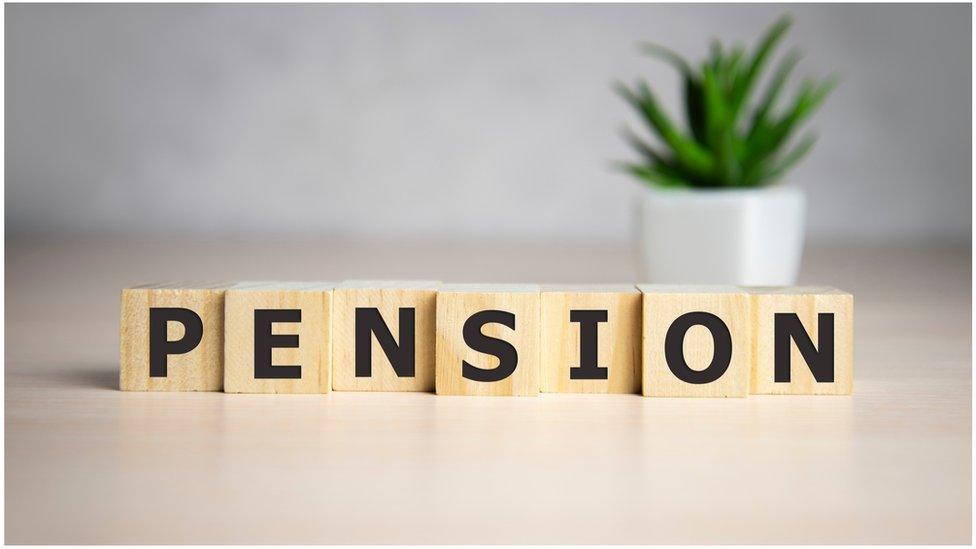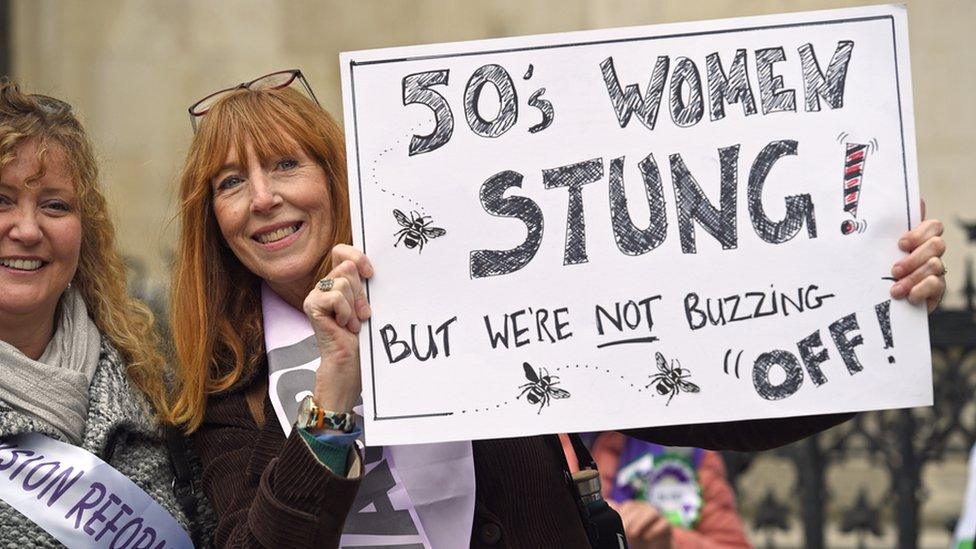Rishi Sunak faces state pension conundrum
- Published
- comments

Retired people are set to receive a 4.1% rise in the state pension in April 2022, an official forecast predicts.
The state pension is going up by 2.5% in April 2021, but the bigger forecast rise in 2022 will come at a time when unemployment is expected to be high.
Chancellor Rishi Sunak will face a balancing act between keeping to a manifesto promise while addressing claims of intergenerational unfairness.
The UK state pension remains one of the less generous in Europe.
Near the end of each year, the government sets the level of state pension to be paid from the following April.
The increases each year are in line with the rising cost of living seen in the Consumer Prices Index (CPI) measure of inflation, increasing average wages, or 2.5%, whichever of those three is highest.
This is known as the triple lock, and is a Conservative manifesto promise until at least 2024.
So, in April next year, the state pension will rise by 2.5% which means:
The new flat-rate state pension (for those who reached state pension age after April 2016) will go up by £4.40 a week from £175.20 a week at present to £179.60 a week in April
The old basic state pension (for those who reached state pension age before April 2016) should go up by £3.35 a week from £134.25 a week now to £137.60 a week in April
In its official forecast for the following year, the Office for Budget Responsibility (OBR) expects the state pension to go up by 4.1%, a rise of about £7 a week.
This is based on its estimates of wage growth, and reflects the expectation of a rebound in wages for those still in work, many of whom had been on furlough.
But it is likely to coincide with a time when young people, particularly, are feeling the economic effects of the coronavirus outbreak and unemployment is predicted to be at relatively high levels.
The rise is not as high as previously predicted. At one point, the OBR said the state pension increase percentage could be in double digits.
The Institute for Fiscal Studies (IFS) said that "it remains the case that the state pension is set to rise by 6% in real terms between now and 2025, raising its cost by £6bn".
"Again, pensions will rise much faster than earnings, let alone working age benefits," said IFS director Paul Johnson.

Former pensions minister, Sir Steve Webb, said that the chancellor faced a "big challenge".
One option for Mr Sunak, he said, was to spread a rise over two years, rather than one.
However, he said the state pension was still "far from a King's ransom".
"It is particularly important for those who do not have much in company or private pension, often women and low earners," said Mr Webb, now a partner at pension consultants Lane Clark and Peacock.
He added that it would be all the more important for young people, who may struggle to build up a private pension now, to expect a healthy state pension in later life.
- Published6 October 2020

- Published15 September 2020

- Published25 November 2020
